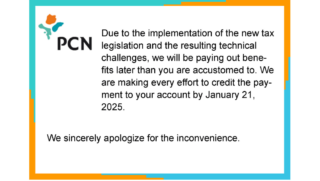Is Statia’s Island Council Dysfunctional? I would argue it’s not!

Ever since the political intervention by The Hague in February 2018, the argument has been that Statia’s Island Council is too weak or too dysfunctional to carry out its full powers. But is it? Part of the current discussion is in how far the Council is ready and able to resume the duties it legally has in our Democratic Constitution.
The strongest argument against the return to ‘full democracy’ on St. Eustatius, seems to be that the exact same people who were ‘deposed’ in 2018 are the ones serving on today’s island Council. From the point of view of political The Hague, it seems as if ‘nothing changed’.
In this debate, I honestly wonder, how many Dutch Politicians, Ministers or State Secretaries have tuned in to one of Statia’s Island Council meetings to see first-hand, how good or how bad the Island Council is functioning? I suspect the answer is: Zero.
What the Dutch Cabinet, or specifically State Secretary Alexandra Van Huffelen feels or ‘knows’, is what she is being fed by the current Government Commissioners. Who, oh how cynical, have been appointed by that same Cabinet.
I would admit that the main players in Statia’s Island Council are all very different individuals, with each their owns stronger or weaker points.
Clyde van Putten, undoubtedly still has the biggest mouth. While many may not like what he says or how he says things, he is often right in what he says or his assessment of things. Unfortunately, as the French so eloquently say ‘C’est le ton qui fait la music’. It is not always what you say, but also how you say it.
A rising star in the Island Council -without doubt- is Rechelline Leerdam. She is often on point, is reasonably eloquent, comes across as genuine, and brings matters in a convincing manner. I would argue that Rechelline is the Council member who has shown the most growth over the past years.
Reuben Merkman often seems to be on the right side of matters, but he is a (very) weak public speaker. Even when he has valid points, the way he brings them forward often makes you as the spectator cringe.
Adelka Spanner most likely will remind people of the DP that ever was -in a distant past! While she certainly knows, based on experience, how things function she is quite absent in the current Council. Not only when it comes to her physical presence. She often does not support motions with the rest of the Council, even when they make perfect sense. With all respect for her career and for her as a person, DP seems in dire needs of fresh blood in the Council.
Koos Sneek is easily the best documented member of the Island Council. He is mostly on point, has vast experience as entrepreneur and in Public Office and always has the underlying facts and figures, before he even opens his mouth. Unfortunately, he is not trusted by many. He is, however much he may want to deny that now, also a relic of the once-powerful Democratic Party.
Now, to me personally it seems that the current Council is actually doing its job. The members pose questions, the members debate, the members are critical and the members form coalitions to present and adopt motions. But how do we objectively determine if a Council is effective or not?
The Association of Dutch Municipalities (VNG) on their website has an interesting Infographic titled ‘Voor een Krachtige Raad’ or For a Powerful Council. In the document, VNG lists the instruments which municipal parliaments have to manage. There are two main categories of Instruments, namely the Control and setting the Framework.
The first category refers to matters like Council Investigation or Hearings, carrying out of Interpellation debates, the submission of Written questions and the posing of Oral Questions. I would argue that the current Council does all that, and does it well.
When it comes to the Framework, one has to think of matters like Right of initiative, the right to establish the Budget, the right to Amend and the right to adopt Motions. It is exactly these instruments which have been taken away by the ‘Temporary Law Task Neglect’. The Statia Island Council has no right to establish budgets and they have no right to appoint a local Government. The Council, at present, can debate about desired amendments, but in this case they are a toothless tiger. Motions can be adopted by the Council, but the Executive Council can choose to ignore these motions, as I would dare say, routinely happens.
My fear is that, when it comes to Democracy on Statia, the parties have entered into a complete and never ending stalemate. The Council no longer has certain powers. The powers are not returned out of fear that they will not be handled well. Because the Council has no (true) Powers, they can never show they are able to manage them well. As they are not able to show they are able to manage the Powers, Democracy is not returned to the island and thus the Island Council.
The question now is, how to get out of this vicious circle? In my opinion, Democracy was shoved to the side a bit too easily, without the fundamental question of how and when it will be returned to the island. The issue of moving goal posts is real; a game known all too well by the Dutch Cabinet, as we remember from the days of former Prime Minister Miguel Pourier and his PAR party trying to restructure the Netherlands Antilles.
Rather than sticking by the criteria of the original Temporary Law Task Neglect, new criteria are invented as time goes by, for instance in the so called Restoration Act. Whatever way you look at it, St. Eustatius is now an island that is going into its 5th year of not having a full democracy! How long can you drag out the process? Is it still fair? Is the Council still not able to carry the full responsibilities of a local parliament on an island of 3000+ inhabitants?
Sometimes it feels like political The Hague in this process has discovered that a Full Democracy also has downsides, and that this is the main excuse not to restore Full Democracy on the island. Yes, the same people that you shoved to the side, were voted right back in. But ultimately, isn’t that what Democracy is all about? The power of the voters to determine by whom they want to be represented, no matter what Political The Hague may feel about them?
If Dutch MP’s or ministers really want to be informed about how things go in the Council, and if the Council is doing a fair job or not, they can -NO, THEY SHOULD- turn into the Public Island Council meetings to make up their own mind, and not blindly follow what others tell them.
In all fairness and without arguing about the fact if the intervention at the time was warranted or not, I would say that the Statia Island Council does not function better, or worse for that matter, than the Island Councils of Bonaire or Saba do.
So why, after nearly 5 years after the intervention, continue and persist in treating St. Eustatius completely different than you treat Bonaire and Saba?













